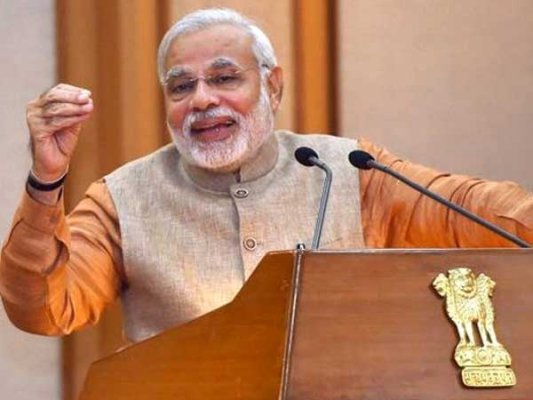
In what has taken most Modi watchers by surprise, the prime minister has shown a keen interest in foreign policy that saw all SAARC leaders, as well as of Mauritius, fly to New Delhi for his inauguration.
He has made quick trips to Bhutan and Nepal to repair ruptures in relationships, taken a strong stand on Tamil rights in Sri Lanka, and is determined to step up ties with not just Japan but also China and the US , although Washington had shunned him for years on account of the 2002 Hindu-Muslim riots in Gujarat.
Ashok Behuria, the Pakistan expert at the Institute for Defence Studies and Analyses, told IANS that the Modi government has shown "some amount of courage" to call off the secretary-level talks with Pakistan after Islamabad's high commissioner met Kashmiri separatists in New Delhi.
"But this could have been done in a smarter way," he added, and suggested that the foreign secretary could have conveyed India's stand in an official manner to Pakistan.
According to him, Narendra Modi is "drawing his red lines" vis-a-vis India's engagement with Pakistan, an action that drew some mainstream media criticism but was widely hailed on social media.
The first major crisis to hit Modi was the abduction of 44 Indian women nurses by Sunni insurgents in Iraq. But the government managed to have them freed. But an unspecified number of Indians remain hostage in Iraq.
Despite Modi's popularity, the BJP has suffered reverses in recent assembly by-polls, from Uttarakhand to Bihar. One ally, the Shiv Sena, has taunted the BJP. With four states going to the polls this year, the BJP is under pressure to show that the Modi wave of May was not a fluke.
Not everyone is impressed with Modi's 100 days.
Critics underline that there has been a spurt in communal riots since Modi took power, that some BJP leaders have poured venom against Muslims, that the annual budget unveiled in July was not reform-oriented as many thought it would be and, contrary to expectations, there has been no big-bang economic policy announcement.
Close to 100 days, assertive Narendra Modi stands tall as PM
New Delhi: As he completes 100 days in office Sep 2, Prime Minister Narendra Modi's popularity is still running high as he unleashes a new style of governance and is surprising everyone with his grasp

Published: , Updated:
Advertisement
Advertisement
Top News
-
Lionel Messi GOAT India tour: Argentine forward meets Telangana CM Revanth Reddy

-
Watershed moment in Kerala politics: PM Modi after BJP's huge win in Thiruvananthapuram Corporation

-
Tail strike: What it is, how it happens and why it matters in aviation? | Explained

-
Pankaj Chaudhary files nomination for UP BJP chief in Lucknow, set to win unopposed | Video

Advertisement
Advertisement